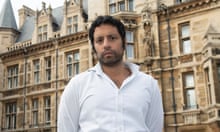On the December morning that Jo Phoenix, professor of criminology at the Open University, was to give a lecture at Essex University on trans rights in prisons, Twitter roared into action, with several Essex staff and students tweeting allegations that a “transphobe” would be on campus.
By 10am Phoenix was warned by a member of university staff that some students were threatening to shut down her lecture, as they said LGBT+ staff and students wouldn’t feel safe if Phoenix gave her talk. At midday the university decided to cancel it because disruption looked inevitable, and proper academic discussion unlikely.
“I was furious,” Phoenix says. “It was very clear to me that those agitating were fundamentally anti-academic because they condemned me and my research without hearing what I had to say.”
Phoenix, who is adamant she is not transphobic, had given the same talk at the University of Newfoundland in Canada a month earlier, to an audience that included trans scholars, without controversy. “They all liked it. So there is something unique about what is going on in the UK,” she says.
The talk explored tensions around placing trans women in British prisons, and argued that there are problems with applying trans rights to criminal justice.
Universities are negotiating a minefield, trying to maintain free speech while faced with two groups of people who both argue they are being made to feel unsafe.
The vice-chancellor of Essex, Anthony Forster, has promised a review into what happened in December, and says the university expects its community not to interfere with “the rights of others to express views with which they might disagree profoundly”. He adds that Essex has “an equally clear commitment to being an inclusive community”.
The transgender debate cuts across many academic disciplines, including law, education, gender studies, philosophy and history. So-called gender-critical feminists, who believe that gender is a social construct rather than innate, say they want to explore trans issues within their fields, but that they, and the debate as a whole, are being stifled in British universities.
However, academics such as Tam Blaxter, a historical linguist at Cambridge University, who is a trans woman, say these arguments make trans staff and students feel vulnerable. “Universities are communities of staff and students first and foremost,” she says. “They will always have a function of discussing difficult issues, but making minority members feel safe and welcomed must come first.”
Kathleen Stock, professor of philosophy at Sussex University and a gender-critical feminist, claims that last month Oxford University Press abandoned a book on female philosophers because her inclusion was deemed too controversial.
Stock, who insists she is not transphobic, is one of the most prominent advocates of gender-critical feminism, and has faced calls for Sussex to sack her. She says that one reason the American office of OUP gave in December for dropping the latest book in a series called Philosophy at 3am, was that she was involved and would attract negative attention. “I think that is terrible and cowardly,” she says.

A spokeswoman for the OUP said it would not comment on the review process for individual projects, but that it did not often publish collections of interviews and this was “a contributing factor to our decision not to pursue this project”.
Dr Kath Murray, a research associate in criminology at Edinburgh University, says there are many obstacles to organising gender-critical events on women’s rights. An event was cancelled at Edinburgh in December because of fears the speakers would face abuse.
Murray says one event that went ahead last year on sex-based rights required extensive security because of anticipated opposition. “There was a one-hour security briefing for speakers, seven security guards attending the event, a security sweep of the lecture theatre beforehand, and ID checks for all attendees,” she says.
In December, another event was due to take place, on schools and gender diversity. Dr Shereen Benjamin, senior lecturer in primary education at Edinburgh and the event organiser, says it was intended to show teachers both sides of the debate. “I wanted to bring together gender-critical speakers who see the increase in referral rates of children to gender identity clinics as problematic, and believe it has multiple social causes, with speakers from trans rights organisations who believe it is due to young people discovering their true identities at a younger age,” she says.
Benjamin says she was unable, however, to persuade any trans rights organisations to share the stage with gender-critical speakers, so the event was redesigned as a research seminar without teachers involved. However, when booking went live in December, the university’s staff pride network criticised it in an email to hundreds of staff, and on its blog, citing guest speakers “with a history of transphobia”.
With at least one academic urging opponents to protest, Benjamin cancelled, fearing speakers would face abuse. “It is now so risky and frightening for people to talk critically about gender identity on campus,” she says.
“We need universities to establish and maintain the boundaries of acceptable protest from within their communities, and to intervene quickly and decisively if there are any attempts at intimidation.”
Jonathan MacBride, co-chair of Edinburgh’s staff pride network, says his committee felt the event “would be upsetting and hurtful for anyone who is trans or an ally to the trans community”.
He says universities should not provide platforms for outspoken gender critics. “When someone has said publicly that they don’t believe trans women are women or, more harmfully, that trans women are men and should somehow be held accountable for the actions of a minority of predatory men in the world, that isn’t really a debate, it’s just hateful speech about an already marginalised minority.”
Universities say privately that they are finding the debate difficult to navigate, because their obligations under the Equality Act seem to clash with freedom of speech. But Colin Riordan, vice-chancellor of Cardiff University, a member of the elite Russell Group, says: “This is a divisive issue and rouses strong emotions, but if we don’t have the debate, how will we ever resolve it?”
Riordan faced down heated demands in 2015 for Germaine Greer, the celebrity feminist, to be banned from lecturing at Cardiff on the grounds that she had made transphobic comments. He says: “The way universities have to approach this, like other difficult issues, is to defend academic freedom and uphold free speech, as long as it is within the law.”
Sarah Honeychurch, a fellow at the University of Glasgow’s business school, says the problem extends beyond university management. She was sacked last summer as editor of the academic journal Hybrid Pedagogy, after signing a public letter by feminists questioning universities’ relationship with the LGBT+ charity Stonewall.
“One of the founding members of the journal said on Twitter that my position was at odds with values he considered to be central to education,” she says.
The journal managers blocked her from accessing any documents and have not spoken to her since, she says. “My background is philosophy. The idea that I can’t challenge anything is deeply troubling.”









